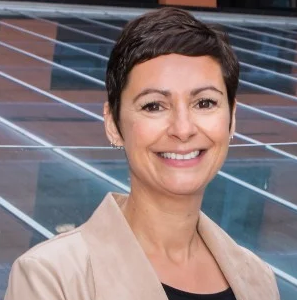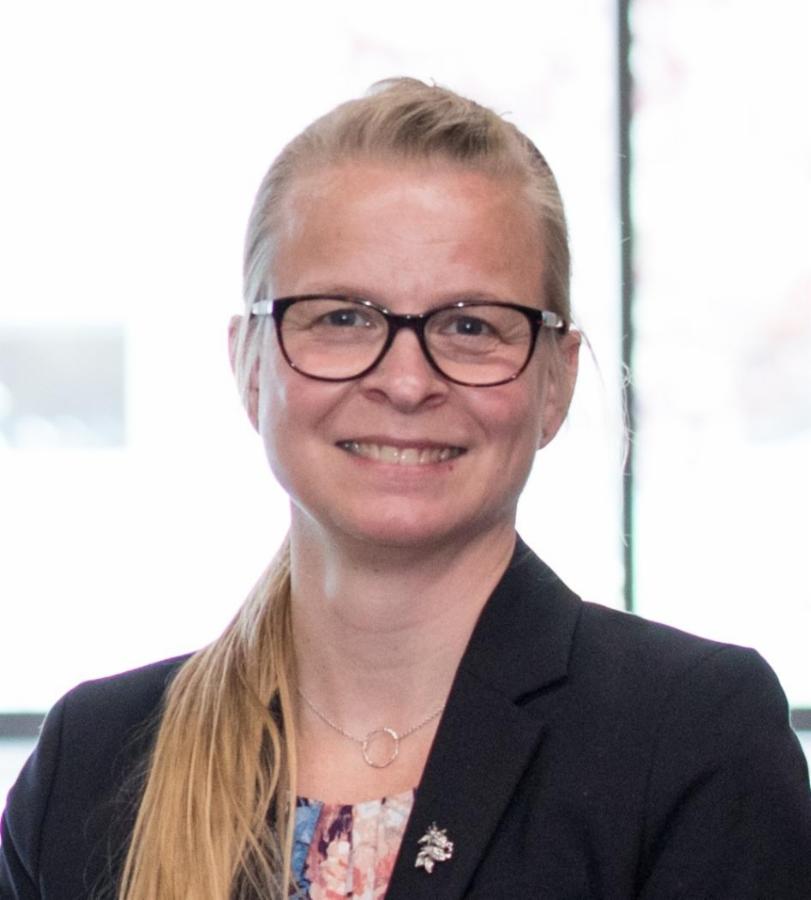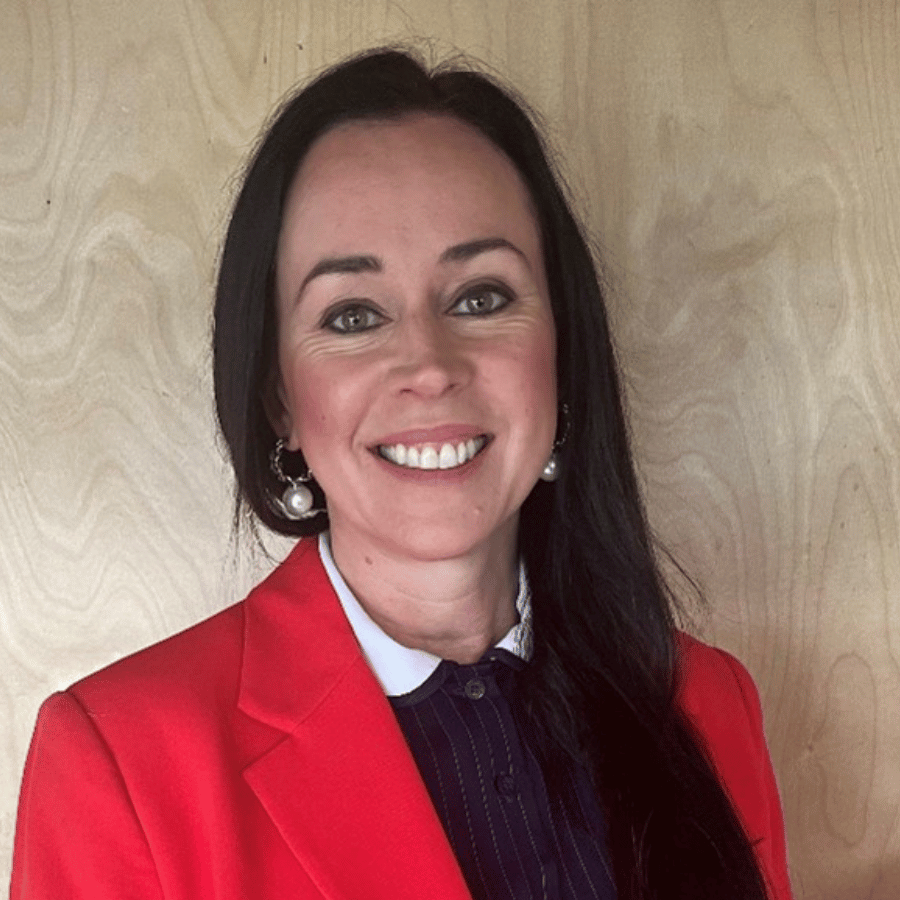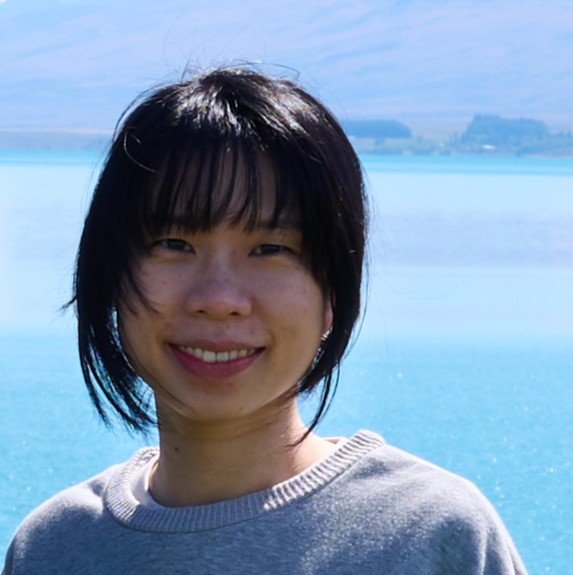Price
Domestic learners
$1,247* per 15 point course
International learners
$5,663* per 15 point course
*Fees outlined are based on the 2026 fee schedule and are subject to revision each year. Prices include GST where applicable. Non-tuition fees, such as the Student Services Levy (SSL), will also apply.
Qualification
MOrgPsyc
180 points
Duration tooltip: Duration is approximate and subject to course availability
3 years part-time
1.5 years full-time
Entry times
20 July 2026
February 2027
July 2027
2028
Overview
The Master of Organisational Psychology is designed to equip aspiring and established leaders, managers, Human Resource professionals and those involved in creating positive work environments with the skills and knowledge to drive positive change.
By focusing on employee wellbeing and organisational effectiveness, you'll learn to enhance motivation, performance, and satisfaction. The programme covers a wide range of essential skills, including job design, talent selection, and creating policies and practices that support employee wellbeing. This programme will help you advance your career in organisational psychology and make a meaningful impact in the workplace.
Please note: the MOrgPsyc is designed to be more practitioner-focused, applying research into the workplace. It is not a transfer pathway to our fully on-campus research-based programmes. For those interested in more academic research, or becoming a registered IO psychologist, please look into our fully on-campus MScIO or PGDipOrgPsyc programmes, which are limited entry and have their own application process.
Requirements
To ensure that our learners have the necessary background and experience to succeed, admission to the Master of Organisational Psychology is based on your previous studies in a relevant bachelor’s degree, or a qualification and practical experience considered to be equivalent.
To enrol in the MOrgPsyc, you must have completed one of the following:
- A bachelor's degree with a major or minor in psychology with a grade average of B or greater in your 300-level (or equivalent) courses
- A bachelor's degree or equivalent qualification with a major or minor in psychology and at least two years of practical, professional or scholarly experience in a relevant field (such as human resources or psychology)
- A bachelor's degree or equivalent qualification in any subject and at least five years of practical, professional, or academic experience in a relevant field (such as human resources or psychology)
- An equivalent degree, or degree plus experience as outlined above, from an international institute that is approved under Academic Equivalent Standing.
If English is your additional language, you are also required to meet UC's English language requirements.
For full entry requirements, see the Regulations for the Master of Organisational Psychology or use the admissions requirements checker.
Unsure about your suitability?
As part of our application process, your eligibility will be assessed by our organisational psychology academic team to make sure that your academic and/or professional background meets the entry criteria - we welcome applications from learners who do not meet the academic requirements but have extensive relevant experience. Unfortunately our Tuihono UC | UC Online team cannot confirm your eligibility before your application is submitted, beyond referring you to the requirements above. We are happy to help answer any general questions you have about the programme or online learning, however. Get in touch with us.
Course requirements
All learners will begin by taking one foundational course, Key Topics in Organisational Psychology (OPSY610). Once you’ve successfully completed this foundation course, you can enrol in up to two 15-point courses per term (subject to course availability, prerequisites and pathway recommendations), before undertaking the 45-point research project. Admission to the Research Project (OPSY630) requires at least a B grade in Research Methods for Organisational Psychology (OPSY622).
Structure
The Master of Organisational Psychology can be studied part-time over 3 years, or full-time over 1.5 years, subject to course availability. The programme must be completed within 5 years.
You'll start out by taking one foundational course, Key Topics in Organisational Psychology (OPSY610). Once you've successfully completed this foundation course, you can enrol in up to two 15-point courses per term (subject to course availability, prerequisites and pathway recommendations), before undertaking the 45-point research project. Our courses are flexible, enabling you to plan your study around your other commitments.
Time commitment
Unless otherwise stated, Tuihono UC | UC Online learners study across terms, rather than semesters. We have four terms per year which consist of nine-weeks of study (including a one-week study break), followed by a two-week period of marking and feedback.
Part-time learners complete one 15-point course every term, requiring approximately 18.5 hours of study per week. Full-time learners complete two 15-point courses every term, requiring approximately 37.5 hours of study per week. Study time includes taking in course material, reflection time and writing assignments. It is generally recommended that the 45-point research paper be completed over three terms (for both full- and part-time learners), although the timeframe may vary depending on your research scope and approval process.
Upcoming term dates
Our current learning dates can be found below (please note: these dates exclude our two-week period of marking and feedback).
2026 dates:
- 2 February – 5 April 2026
- Study break: 2 – 8 March 2026
- 27 April - 28 June 2026
- Study break: 25 – 31 May 2026
- 20 July - 20 September 2026
- Study break: 17 – 23 August 2026
- 12 October - 13 December 2026
- Study break: 9 – 15 November 2026
Please note: these dates are provisional and may be subject to change.
Begin

Get started with an introduction to Key Topics in Organisational Psychology. This foundational course is the introductory step in the Master of Organisational Psychology and is the only course you will take in your first term of study.
Course taken: Key Topics in Organisational Psychology (OPSY610).
Learn
Having successfully completed Key Topics in Organisational Psychology, take the next step in your learning.
Courses taken: Recruitment and Selection (OPSY621), Psychology of Stress, Health and Wellbeing at Work (OPSY619), Training and Development (OPSY613), Performance Management and Appraisal (OPSY612), and Leadership in Organisations (OPSY614).
Develop
Develop your organisational psychology scientist-practitioner knowledge and skills through two advanced courses.
Courses taken: Organisational Change: Directions for Organisational Psychology Practice (OPSY618), and Contemporary Issues in Organisational Psychology (OPSY620).
Progress

Develop your research methodology skills that will be essential to the success of your Master's research project.
Course taken: Research Methods for Organisational Psychology (OPSY622). You must achieve a B grade or better to progress to the Research Project (OPSY630).
Apply
Apply your advanced organisational psychology knowledge and skills through conducting original research.
Course taken: Research Project (OPSY630).
Master
Upon successful completion of all courses, graduate and showcase your mastery with your Master of Organisational Psychology from Te Whare Wānanga o Waitaha | University of Canterbury!
What you'll study
You'll study nine NZQF level 8 postgraduate courses for the Master of Organisational Psychology, concluding with a NZQF level 9 research project related to your chosen area of professional focus.
Description
This course introduces the scientist-practitioner field of organisational psychology. The course covers the five key areas of Recruitment and Selection, Performance and Motivation, Leadership, Organisational Change, and Employee Wellbeing. Learners’ own organisational experiences and specific organisational contexts, including contemporary Māori and indigenous organisations are considered throughout the course.
Learning Outcomes
On completion of the course, it is expected that learners will be able to:
- Describe relevant theories and concepts in organisational psychology.
- Apply organisational psychology theory to specific contexts.
- Evaluate organisational practices in given contexts, including contemporary Māori and indigenous organisational structures.
- Reflect on the application of organisational psychology theory to your own experience.
Description
This course explores the evidence-based practices for attracting and hiring the most appropriate talent for a job role. This includes the three key stages in the recruitment and selection process: 1) conducting a job analysis, and 2) developing and 3) validating a selection system. Contemporary challenges in recruitment and selection within Aotearoa New Zealand and internationally will also be considered: for example, the issue of bias on fairness and equity in personnel decision-making.
Learning Outcomes
On completion of the course, it is expected that learners will be able to:
- Conduct a job analysis and create verifiable job descriptions and specifications
- Develop tools for a selection system informed by a job specification and guided by the value of kia tika.
- Determine the validity of selection decisions.
- Critique the strengths and limitations of methodologies used in personnel psychology.
- Justify the value of personnel psychology in contemporary workplace practices.
Prerequisites: Key Topics in Organisational Psychology (OPSY610).
Description
This course focuses on stress, health, and wellbeing at work. The course will provide an overview of recent research on how to create psychologically healthy workplaces. It provides learners with a framework for analysing how stress, health, and wellbeing at work impact on individuals and organisations. The course also focuses on how organisational psychology can contribute to solving problems related to stress, health, and wellbeing at work. Critical thinking, relating theory to practice, and relating new concepts to old theories, as well as critical reflection and discussion, both oral and written, will be emphasised.
Learning Outcomes
On completion of the course, it is expected that learners will be able to:
- Discuss and contrast existing theories on work stress, health, and wellbeing at work.
- Analyse how employee attitudes, health, and wellbeing may be affected by working conditions, management practices, and interpersonal interactions at work.
- Apply theories on stress, health, and wellbeing, including Māori models of wellbeing, to diagnose related problems at work.
- Propose solutions to issues related to stress, health, and wellbeing in working life and how these solutions can be implemented and evaluated.
- Reflect on your own wellbeing journey and what your values, strengths, and preferences are in working life, taking into account your culture and beliefs.
Prerequisites: Key Topics in Organisational Psychology (OPSY610).
Description
Training is a systematic method of learning new skills, rules, concepts, or attitudes that can result in an improvement in performance. This course will consider training and development in the context of employees in workplaces. Content will cover the theories, research, and practices behind how to design and execute a training programme responsive to learners’ needs, how to optimise the likelihood of training transfer into the workplace context, and how to critically evaluate a training programme.
Learning Outcomes
On completion of the course, it is expected that learners will be able to:
- Identify individual and organisational training needs and recommend training design and implementation plans that suit different needs and support equity and inclusion.
- Develop and facilitate a training programme, considering indigenous models of development, knowledge, and behaviours.
- Evaluate individual and group learning progress and the utility of a training programme.
- Critique current research in training and development and evaluate its applicability to relevant contexts, including bicultural contexts.
- Reflect on your own learning journey throughout the course and plan out how to enable the transfer of new knowledge to your career aspirations.
Prerequisites: Key Topics in Organisational Psychology (OPSY610).
Description
This course will focus on the theory and application of performance management research. This will include the development of performance management systems in organisations. Topics include criterion theory and development, performance appraisal methods, feedback, job evaluation and reward systems.
Learning Outcomes
On completion of the course, it is expected that learners will be able to:
- Explain the purpose of performance management in relation to an organisations strategic plan.
- Critically discuss the relevant literature to performance management.
- Critically evaluate performance management systems, understanding both their benefits and limitations.
- Design a performance management system, incorporating the values of whanaungatanga, tiakitanga, and manaakitanga.
Prerequisites: Key Topics in Organisational Psychology (OPSY610).
Description
This course focuses on the domain and scope of leadership in organisations. Classic and contemporary theories and research are outlined and discussed, highlighting their contributions and limitations in occupational settings. The topics include trait and behavioural theories, values-based leadership frameworks, and their implications to organisational dynamics and success.
Learning Outcomes
On completion of the course, it is expected that learners will be able to:
- Critically discuss foundational theories in leadership.
- Explain leadership emergence and effectiveness using leadership theory.
- Evaluate the applicability of leadership theories and research, including indigenous models of leadership, to organisational challenges.
- Formulate evidence-based strategies for leadership development, which uphold the value of manaakitanga.
Prerequisites: Key Topics in Organisational Psychology (OPSY610).
Description
This course considers the frameworks and research (e.g., leadership, motivation, training, and individual differences) that inform organisational change planning and implementation. Learners will develop knowledge and competencies to: a) critically analyse organisational change practices, b) identify challenges faced by change leaders and employees, and c) facilitate organisational change implementation. Topics covered include psychological mechanisms of change resistance and readiness, change leadership, and training for changing organisations.
Learning Outcomes
On completion of the course, it is expected that learners will be able to:
- Evaluate the contribution of organisational psychology in facilitating organisational change.
- Apply concepts from change research and literature, as well as the value of kia aroha, to design a change management proposal.
- Describe the influence of individuals, groups, leadership and organisations on change outcomes.
- Critically appraise organisational change research, theory, and current organisational practices.
Prerequisites: Key Topics in Organisational Psychology (OPSY610).
Description
This course focuses on developing your organisational psychology scientist-practitioner knowledge and skills. The course considers current topics relating to the professional, ethical, legal, and cultural practice of Organisational Psychology in Aotearoa New Zealand and internationally. Learners will identify current gaps in organisational practices and develop evidence-based solutions to address these gaps.
Learning Outcomes
On completion of the course, it is expected that learners will be able to:
- Design an evidence-based solution to a contemporary organisational issue, taking guidance from the values of whanaungatanga and manaakitanga.
- Effectively communicate an organisational psychology topic to a general audience.
- Reflect on your learning and development to inform your approach to working in organisational psychology.
- Promote yourself as an organisational psychology scientist-practitioner.
Prerequisites: Key Topics in Organisational Psychology (OPSY610), plus 45 points from any of the following courses: Recruitment and Selection (OPSY621), Psychology of Stress, Health and Wellbeing at work (OPSY619), Training and Development (OPSY613), Performance Management and Appraisal (OPSY612), Leadership in Organisations (OPSY614), and Organisational Change: Directions for Organisational Psychology Practice (OPSY618).
Description
This course aims to develop learners’ research methodology skills and knowledge in preparation for the research project. Quantitative and qualitative research designs relevant to organisational psychology are considered and contrasted. Ethical considerations involved in researching human participants and within organisations are explored. Reporting, analysing and interpreting research findings for organisational use are also examined.
Learning Outcomes
On completion of the course, it is expected that learners will be able to:
- Apply quantitative and qualitative research design within the organisational psychology context.
- Apply appropriate statistical and qualitative analysis methods to data, while upholding the value of tiakitanga.
- Communicate organisational psychology research findings to a general audience.
- Apply University of Canterbury human research ethical guidelines and procedures to a research proposal.
- Interpret organisational data to diagnose and address organisational issues, while demonstrating the value of whanaungatanga.
Prerequisites: Key Topics in Organisational Psychology (OPSY610), Recruitment and Selection (OPSY621), Psychology of Stress, Health and Wellbeing at work (OPSY619), Training and Development (OPSY613), Performance Management and Appraisal (OPSY612), Leadership in Organisations (OPSY614) and Organisational Change: Directions for Organisational Psychology Practice (OPSY618).
Grade requirements: Learners will need to achieve a B grade or better in this course to progress to the Research Project (OPSY630).
Description
Learners will undertake a 45-point research project based on an appropriate workplace or industry related research problem or opportunity. This course involves conducting an independent research project which aims to inform a relevant organisational issue or topic. This course will be undertaken on successful completion of the core courses in Master of Organisational Psychology programme. The project will involve planning, preparation, conducting and reporting the research project.
Learning Outcomes
On completion of the course, it is expected that learners will be able to:
- Critically analyse organisational psychology literature.
- Apply theoretical concepts and frameworks to a given organisational issue.
- Carry out independent research in an organisational setting, while demonstrating the values of whanaungatanga, tiakitanga, and manaakitanga.
- Effectively communicate research findings to a range of audiences.
Prerequisites: Research Methods for Organisational Psychology (OPSY622). Learners must achieve a B grade or better in OPSY622 to progress to the Research Project.
Our people
The Master of Organisational Psychology is supported by contributions from Dr Fleur Pawsey, Professor Joana Kuntz, Professor Katharina Näswall, Dr Jennifer Wong, Dr Megan Blakely, Dr Anahí Van Hootegem, Dr M.K. Ward and coordinated by Dr Eri Koh.

Dr Fleur Pawsey
Lecturer, School of Psychology, Speech and Hearing, University of Canterbury
Fleur Pawsey is a Lecturer at the University of Canterbury. Fleur's PhD, awarded in 2020, focused on relationships between mindfulness, stress, and wellbeing. Fleur is interested in how mindfulness practices can be utilized in day-to-day life, to support employees and promote positive work experiences. With a background in high-performance endurance and adventure sports, and experience in coaching, Fleur is also especially interested in how employers can support the physical health and fitness of employees, and how organizations can weave aspects of nature into their working environments.

Professor Joana Kuntz
Professor, School of Psychology, Speech and Hearing, University of Canterbury
Joana Kuntz is an Associate Professor at the University of Canterbury, New Zealand. She gained her PhD from the University of Tennessee, and worked in organisational development in Europe and the United States prior to moving to New Zealand in 2009. She is the co-founder of the Employee Resilience Research group, a team of UC-based researchers who worked alongside government agencies and private corporations across sectors to facilitate the development of resilience capability following the Christchurch Earthquakes. Joana’s current focus is the future of work, and her applied research spans employee resilience and wellbeing, diversity and inclusion, leadership development, and organisational interventions (design, implementation, and evaluation).

Professor Katharina Näswall
Professor, School of Psychology, Speech and Hearing, University of Canterbury
Katharina Näswall's research focuses on employee well-being and factors which lead to psychologically healthy workplaces, applying psychological principles and knowledge about human behavior and emotions. Katharina strives to work with end-users to disseminate findings from her own and others’ research to support organizational development, and has built several ongoing collaborations with organizations outside the University, providing advice and evaluations of staff engagement and wellbeing. Katharina supports her own wellbeing by gardening and walking in the Port Hills, Christchurch. She is from Sweden and moved to New Zealand in December 2010.

Dr Jennifer Hoi Ki Wong
Senior Lecturer, School of Psychology, Speech and Hearing, University of Canterbury
Jennifer Hoi Ki Wong is a Lecturer at the University of Canterbury. She received her PhD in Industrial-Organisational Psychology in 2016. Her research interests are in workplace wellbeing and safety, positive psychology, leadership, team culture, and change management. Jennifer is passionate about achieving tangible impact through her expertise, and thrives off of figuring out how her research can help workplaces. She also works as a consultant with organisations, carrying out employee assessment, training and evaluation, and coaching. Her own wellbeing is achieved through activities in the great outdoors, or being crafty with her hands.

Dr Megan Blakely
Lecturer, School of Psychology, Speech and Hearing, University of Canterbury
Megan has a PhD in Human Factors psychology and has taught at UC and Lincoln University, as well as other roles within UC and the private sector. She is mum to two lovely boys, and enjoys multi-sport, karate, surfing, sailing and the outdoors.
Megan appreciates that learning new things can be really hard, so her teaching philosophy is to be kind to each other and act with compassion. You never know what people are going through, and kindness ensures our productivity, learning and enjoyment. Having good relationships with your peers will help you if you miss a class and help foster the community which is so important in the online environment.

Dr Anahí Van Hootegem
Lecturer, School of Psychology, Speech and Hearing, University of Canterbury
Dr. Anahí Van Hootegem is a Lecturer at the University of Canterbury and a facilitator for Tuihono UC | UC online. She earned her PhD from KU Leuven in Belgium, where she focused on the relationship between job insecurity and work-related learning. Her doctoral research also explored how job insecurity influences various employee behaviours, including creativity and innovative work behaviour. Before pursuing her PhD, Anahí worked in the training and development department of a hospital. After completing her PhD, she conducted a postdoctoral study on the political repercussions of job insecurity, applying a work psychological perspective to assess its impact on broader societal outcomes such as trust in government, perceptions of social safety nets, and political cynicism.
Her postdoctoral research included a collaborative visit with Professor Katharina Näswall at the University of Canterbury. Anahí has conducted multiple risk analyses within organisations, providing feedback on job improvements to enhance employee well-being. She is passionate about creating healthier workplaces and ensuring that jobs are designed with employee well-being in mind. She moved to New Zealand in 2022, and in her free time, she enjoys tramping, yoga, and mindfulness.

Dr M.K Ward
Lecturer, School of Psychology, Speech and Hearing, University of Canterbury
M.K. earned her PhD in Industrial and Organisational Psychology from North Carolina State University in the United States. Her research has focused on survey methodology, work design, entrepreneurship, and organizational neuroscience. She has published in these areas in academic journals, including: Applied Psychology, Computers in Human Behavior, Academy of Management Annals, and Annual Review of Psychology.
She brings a non-linear, international career path that spans academia and industry, drawing on both the research literature and experience leading HR and people analytics functions in technology organisations. In industry, she tackled real-world questions about work design, employee experience, and organisational effectiveness. M.K. is excited to bring the hard-won lessons and mistakes she's made along the way to enrich her facilitation, and shares what she can to help guide learners as they move from broad research interests to clear, defensible study designs. She's looking forward to learning as she helps learners develop critical and constructive thinking around how research questions, data sources, and analytical choices fit together. M.K. is new to Aotearoa New Zealand and, outside of work, enjoys biking, surfing, sunsets, and settling into life in Christchurch.

Eri Koh
Programme Coordinator | School of Psychology, Speech and Hearing | University of Canterbury
Eri’s research is in the fields of positive psychology and wellbeing, focusing on emotional experience and regulation in different contexts, such as at work and home, online/virtual and offline environments. She is interested in helping individuals flourish in the workplace, build resilience and overcome adversity in their lives, and apply research findings to practical settings. Eri also has a background in cross-cultural psychology, examining how cultural norms shape individuals’ interpretations of their world, including work culture and interpersonal relationships. As part of both work and play, she enjoys spending time in nature and beach combing, testing out her hypotheses about regulating calm emotions and seeking whatever knick-knack she considers as treasure.
Stay updated
If you’re keen to know more, stay updated on when enrolments open or ask a question, please sign up for updates below.
Cap & minimum enrolment threshold: a minimum number of learners is needed for effective interaction and feedback, while a maximum cap of learners ensures high quality learning and support. If the minimum number of enrolments required for a course isn’t met, or the maximum cap is exceeded, learners will be given the option to defer their study or receive a refund.
Testimonials
Anne
Master of Organisational Psychology
"It was all really interesting and showcased how pivotal the recruitment and selection process is (far more than I thought). Synchronous sessions provide a great opportunity to have interaction and hear others speak about their experiences. I can not recommend the tutors enough, their availability, helpfulness and patience has been fantastic."
Ben
Master of Organisational Psychology
"There was a great mix of content and assessments and it was great to be able to interact with others on the course content in the Sync sessions."
Learner
Master of Organisational Psychology
"Appreciate the helpful guidance and support given by the Facilitators, particularly when having a confidence crisis!"
Learner
Master of Organisational Psychology
"Thank you for working so hard to get this course up and running. As a first intake student, I've really enjoyed it, and can see the hard work that has gone into making sure in runs smoothly."
Learner
Master of Organisational Psychology
"I enjoyed the applied nature of the assignments - for most assignments we could reflect on "real-world" situations, and immediately relate it in a practical way."
Learner
Master of Organisational Psychology
"Our course facilitator and the UC Online team have been exceptionally supportive throughout the course. It is clear that they are truly invested in nurturing the success of us as learners."
FAQ
Whether you need advice finding the right course for you or support with the enrolment process, we’re here to help! Contact enrolment support for course information, technical help and enrolment support.
The University of Canterbury's online Master of Organisational Psychology is a graduate degree programme designed to develop advanced knowledge and skills in the application of organisational psychology to the workplace.
Bringing together the latest industry-informed learning applicable to your life and career, the UC Online Master of Organisational Psychology gives you the same quality education as our on-campus programmes, with the flexibility of online learning.
This includes 24/7 access, academic advice and technical support, giving you the support to study anywhere, anytime, at your pace.
Graduates can work in a variety of settings, including consulting firms, government agencies, and private businesses, in roles such as organisational development consultants, human resources managers, and training and development specialists. Find out more here.
The overall cost of tuition fees per 15 point course based on the 2026 fee schedule:
- for domestic learners is $1,247* incl GST
- for international learners is $5,663* plus GST if applicable.
Total programme investment for 180 point programme based on the 2026 fee schedule:
- for domestic learners is $14,964* incl GST
- for international learners is $67,950* plus GST if applicable.
Please note that the fees are charged on a per year basis and the amount charged reflects the number of courses/points enrolled in the current year. These are based on the 2026 fee structure and subject to revision – you can learn more about the University of Canterbury’s Tuition fee structure here.
Student Services Levy costs
Each year university students around Aotearoa New Zealand are charged a Student Services Levy (SSL) in addition to their tuition fees. All the SSL money collected can only be used for the benefit of students - never for academic or administrative costs.
The SSL is automatically calculated on how many points you enrol in per academic year, capped at a maximum of 150 points. Tuihono UC | UC Online learners are charged a reduced SSL rate, which is 20% of the usual on-campus student levy. This is calculated as $2.06 per academic point in 2026. You can learn more about the Student Services Levy here, and more about UC Support Services here.
There are a range of options you can use to finance your study, which you can learn more about here.
StudyLink student loans
We know that many of our learners plan to use a StudyLink student loan to finance their study. If you're considering StudyLink, it can take up to a month to process your loan application. Learn more about StudyLink student loans here.
Employer payments
If your employer is financing your study and wants to pay via invoice, credit card or bank transfer, this can be arranged after your application is approved. Please note that your employer will need to provide a written guarantee of payment so you can start learning from your preferred start date. This must be signed by them and specify:
- name and address of the company, employer, or sponsor
- student name and address
- amount to be paid by the company, employer, or sponsor
For further information, please contact Student Finance. You will only be fully enrolled when your fees are paid. Fees cannot be paid by instalment.
Those who have successfully completed the certified edX MicroMasters® in Organisational Psychology (including passing each of the final assessment items in the 5 courses) may apply to credit 15 points to the Master of Organisational Psychology and have OPSY610 waived.
You can check the eligibility of your prior learning by emailing info@uconline.ac.nz.
The programme can be completed from 1.5 years of full-time study, or 3 years of part-time study, subject to course availability.
Studying online allows for flexibility in completing coursework, and the University of Canterbury's programme provides learners with the same quality education and resources as our on-campus programmes.
The content of the programme is the same, but the online programme offers greater flexibility in terms of scheduling and location.
The programme is delivered entirely online, using a range of technologies including video conferencing, online discussion forums, and interactive learning experiences.
Learners have access to the same support services as on-campus students, including academic advising, technical support, and library resources. There are also great resources for both Canterbury based and remote learners at the UC RecCentre. Learn more here.
Learners also have the support of our Tuihono UC Learner Experience team.
Applications are made online through our UC Online website – view open enrolments and/or expressions of interest for when enrolments open.
If you are a domestic learner, the below process will apply. If you are an international learner, the application process is slightly different, and we recommend getting in touch with our enrolment team at info@uconline.ac.nz to answer any questions.
For domestic learners, your application will be assessed by our academic team to make sure you meet all entrance criteria (including academic and english language requirements). We may be in touch to ask you further questions about your experience, or to request additional supporting documentation. If your application is accepted, you will be sent an 'Offer of Place' to let you know your enrolment has been conditionally approved.
Following this, we will generate an ‘Enrolment Agreement’ outlining your courses, fees and student agreement, which you need to sign and accept. Your enrolment is only complete when the fees outlined in this agreement are paid in full (view payment options), at which point you’ll become ‘Fully Enrolled’ and receive a ‘Welcome to Tuihono UC | UC Online’ email with details of your next steps to start learning. If you have any questions during the enrolment process, please get in touch with our team via info@uconline.ac.nz.
Learners are expected to participate actively in online discussions, and complete assessments on time. The programme will at times be complemented by live online sessions to connect the cohort and facilitators, however these are non-mandatory and where relevant the sessions will be recorded and made available to all learners to access in their own time.
This degree is not accredited for registration as a Psychologist, and eligibility into further study in an accredited programme should be discussed with the University of Canterbury.
The Master of Organisational Psychology is a standalone professionally relevant qualification. Like other postgraduate degrees, it can strengthen your academic profile and improve your chances of pursuing further study in Organisational Psychology if you have already completed a master’s degree. However, if you are specifically interested in pursuing a PhD or are seeking accreditation to be a registered Psychologist in New Zealand, we recommend you apply for the on-campus Master of Science in Industrial and Organisational Psychology, which includes a 90-point dissertation (and therefore a pathway to PhD or registration via the PGDipOrgPsyc).
Any consideration towards the on-campus master's programme while in the MOrgPsyc programme would highly depend on exceptional academic performance, be subject to approval and will be determined on a case-by-case basis.


